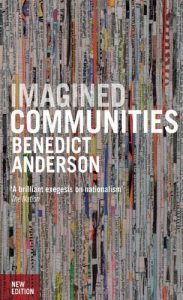Martin Wolf has always been super-gloomy. In 2016 he really came into his own, as the year delivered him so much to be gloomy about. His latest column in the Financial Times is a great example, ending with a prediction that authoritarian nationalism is centre stage and will change everything about the world order.
The column alludes to Benedict Anderson’s Imagined Communities, so I went back to the book today. I’d underlined this definition of ‘official nationalism’: “An anticipatory strategy adopted by dominant groups which are threatened with exclusion from an emerging nationally-imagined community.” Not so much the left-behinds as the ‘once-aheads, really don’t like their loss of status in a changed nation’.
As Wolf puts it: “[T]he politics of nationalist resentment are not just an upsurge from below. They are a tactic of power-seekers.” He argues that economics is bound to find itself in opposition to official nationalism: “Perhaps the greatest contribution of economics is the idea that societies will gain more from seeking to trade with one another than trying to conquer one another. … The wise relationship between states, therefore, is one of co-operation, not war, and trade, not isolation. This brilliant idea happens to be correct. But it is also counter-intuitive, even disturbing. It means that one might gain more from foreigners than fellow citizens.”
So brace yourselves, fellow economists. The Govian war on experts will continue.

